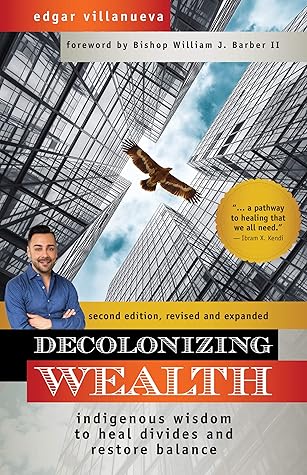More on this book
Community
Kindle Notes & Highlights
Read between
March 26 - April 24, 2023
Words are important. In many traditions, there is a belief that words have a power to create reality and must be used with discretion and responsibility. Yet people communicate much more than just the content of what they say. People’s tone of voice, their use of metaphor, their body language also tell us a lot about their experience, their identity, and their worldview. Therefore, good listening includes being: • open, not predetermining the appropriate content of communications; • empathetic, truly inviting in and making space for the feelings and wisdom of the speaker; and • holistic,
...more
Effectively moving money to where the hurt is worst—using money as medicine—requires the funder to have deep, authentic knowledge of the issues and communities that will be putting the funding to use. Deep, authentic knowledge does not come from reading some stats, reports, or articles; it doesn’t even come from a site visit to the affected community or interviewing someone from that community. It comes from living inside the community and experiencing that issue for oneself. Period.
As Jordan Flaherty writes in his book on the savior complex, “For people born into privilege, decentering yourself can feel difficult. It involves giving up a certain amount of privilege.”9 And as the saying goes, when you’re accustomed to privilege, equality feels like oppression. That discomfort is part of the healing.
The writer Ta-Nehisi Coates has also written eloquently on the subject of reparations: The wealth gap merely puts a number on something we feel but cannot say—that American prosperity was ill-gotten and selective in its distribution. What is needed is an airing of family secrets, a settling with old ghosts. What is needed is a healing of the American psyche and the banishment of white guilt. What I’m talking about is more than recompense for past injustices—more than a handout, a payoff, hush money, or a reluctant bribe. What I’m talking about is a national reckoning that would lead to
...more
There’s a lot of showing up with food, showing up to help and sit with people in time of mourning. Just showing up. I mean, that’s one of the biggest lessons I learned from my family: you may not know what to do, but you better show up. Whether that means sharing food, sharing firewood, sharing whatever you had. Taking in extended family because they’re going through a rough time and raising their kids. I think that’s the biggest difference I see between kind of this mainstream framework and Native communities is that there’s such a focus on individualism. And in our communities it’s like, no,
...more
We are not a healthy community unless we’re taking care of everybody, and I mean all our relations, inside and outside our tribes.
Reciprocity is the sense that I’m going to give to you because I know you would do the same for me. No one is just a giver or just a taker; we’re all each at some point in our lives. This also reflects a cyclical dynamic, as opposed to a one-off, one-way relationship. The Native botanist Robin Wall Kimmerer writes in her book Braiding Sweetgrass, “Reciprocity is a matter of keeping the gift in motion through self-perpetuating cycles of giving and receiving…. Through reciprocity the gift is replenished. All of our flourishing is mutual.”5
Prayer, ritual, ceremony were everywhere and constant. “The whole time, you are in ceremony,” said activist AnaYelsi Velasco-Sanchez, who volunteered in the kitchens. “You wake in a space committed to prayer, every action is referred to as an act of prayer. If you are working in the kitchen and you are preparing this food, you are preparing medicine for the people. Prayer was embodied in the space; it was a posture you took.”8 Predictably, heart-wrenchingly, the militarized police force turned out to protect the interests of the oil business. One observer, who volunteered as a medic, witnessed
...more
Mitakuye Oyasin—all my relations. We are all related, all connected. The Native way is to bring the oppressor into our circle of healing. Healing cannot occur unless everyone is part of the process. Let it begin.


